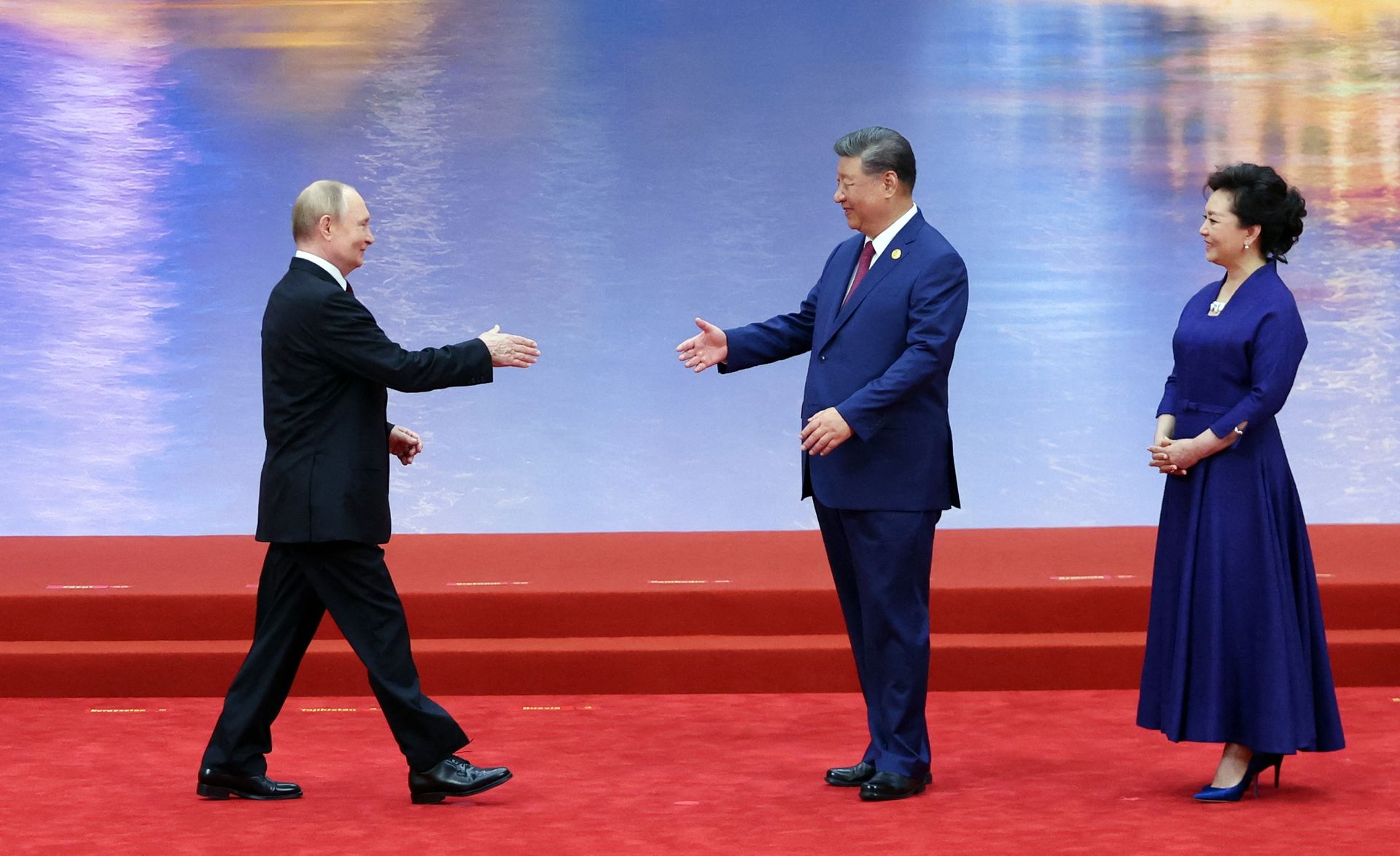Putin meets Slovak prime minister Fico in Beijing, praises his 'independent' policy

Editor's note: The story was updated with Russian President Vladimir Putin's quotes regarding Ukraine's access to reverse gas flows.
Russian President Vladimir Putin met Slovak Prime Minister Robert Fico in Beijing on Sept. 2, where the two discussed Russia's war against Ukraine, relations with Western countries, and economic ties, Russian state-run media outlet RIA Novosti reported.
Fico traveled to China to attend events marking the anniversary of Japan's surrender in World War II, making Slovakia the only EU country represented. After meeting Putin, he is expected to hold talks with President Volodymyr Zelensky later in the week.
At the meeting, Fico said Slovakia sought to "standardize" relations with Moscow, saying the two countries "should look for opportunities to deepen and broaden cooperation."
Fico also pledged to raise with Zelensky what he described as the inadmissibility of attacks on energy infrastructure, a reference to recent Ukrainian strikes on the Druzhba oil pipeline, which supplies Russian crude to Hungary and Slovakia.
The Druzhba pipeline is one of the world's largest oil networks and remains a lifeline for Hungary and Slovakia, the only EU countries still importing Russian crude through the system.
During the meeting, Putin called for curbing Ukraine's access to reverse gas flows and electricity imports from Europe to pressure Kyiv into halting attacks on energy infrastructure linked to the West. Meanwhile, Slovakia remains one of the key routes for reverse gas supplies to Ukraine.
"The Ukrainian side is trying to harm us, but it is also harming our partners," Putin said.
"Ukraine receives significant energy resources through its neighbors in Eastern Europe. Cut off their reverse gas supplies, cut off their electricity supplies, and they will immediately understand that there are limits to their behavior in violating the interests of others," Putin added.
Putin also used the talks to accuse Ukraine of escalating strikes against Russian energy facilities, claiming Moscow refrained from targeting Ukrainian infrastructure "for a long time."

"We did not take any actions concerning civilian infrastructure, especially during the winter period, and for a very long time we tolerated when Ukrainian troops were striking our energy facilities," he said.
"After that, we started to respond, and we are responding, of course, seriously," Putin said.
His remarks contradict the record: in 2024, Russia launched at least 13 mass drone and missile attacks against Ukraine's energy grid, forcing emergency blackouts nationwide. Just days earlier, Russian strikes on Odesa Oblast left more than 29,000 consumers without power.
During the meeting, Putin also claimed that Russia has never opposed Ukraine's accession to the EU, but NATO membership remains "unacceptable" for Moscow.
Since returning to office in 2023, Fico has ended military aid to Ukraine from Slovak army stocks and questioned EU sanctions on Russia, moves that drew criticism from Kyiv and Brussels.
In the past, Fico has also vowed to block Kyiv's entry into NATO — a move that requires the agreement of all 32 members, including Slovakia — but said he was open to Ukraine joining the EU.
The Russian president praised Bratislava's stance, calling it an "independent foreign policy" that produces "positive results."
Putin and Fico last met in Moscow in May during Russia's Victory Day celebrations.













